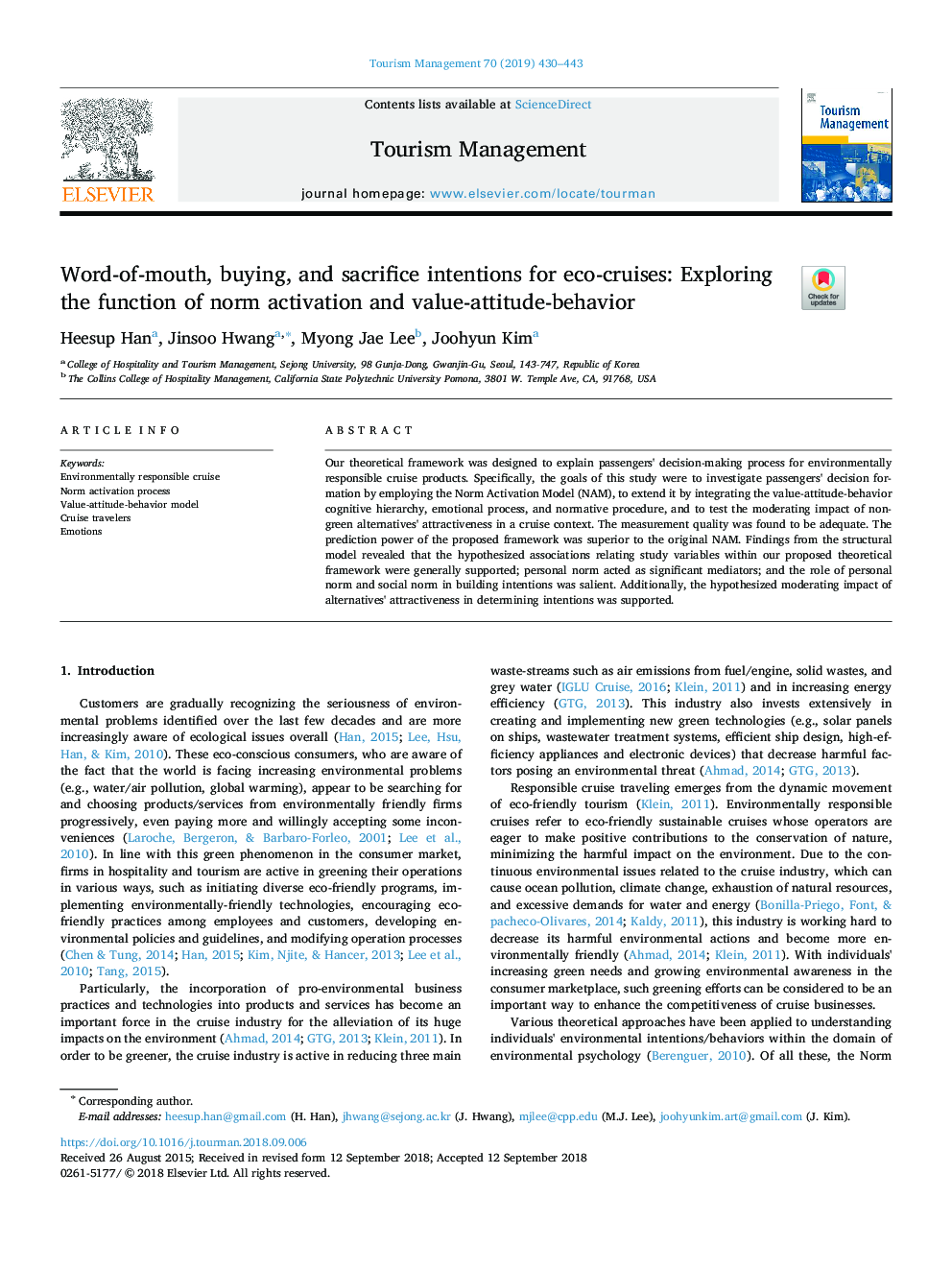| Article ID | Journal | Published Year | Pages | File Type |
|---|---|---|---|---|
| 11005078 | Tourism Management | 2019 | 14 Pages |
Abstract
Our theoretical framework was designed to explain passengers' decision-making process for environmentally responsible cruise products. Specifically, the goals of this study were to investigate passengers' decision formation by employing the Norm Activation Model (NAM), to extend it by integrating the value-attitude-behavior cognitive hierarchy, emotional process, and normative procedure, and to test the moderating impact of non-green alternatives' attractiveness in a cruise context. The measurement quality was found to be adequate. The prediction power of the proposed framework was superior to the original NAM. Findings from the structural model revealed that the hypothesized associations relating study variables within our proposed theoretical framework were generally supported; personal norm acted as significant mediators; and the role of personal norm and social norm in building intentions was salient. Additionally, the hypothesized moderating impact of alternatives' attractiveness in determining intentions was supported.
Keywords
Related Topics
Social Sciences and Humanities
Business, Management and Accounting
Strategy and Management
Authors
Heesup Han, Jinsoo Hwang, Myong Jae Lee, Joohyun Kim,
